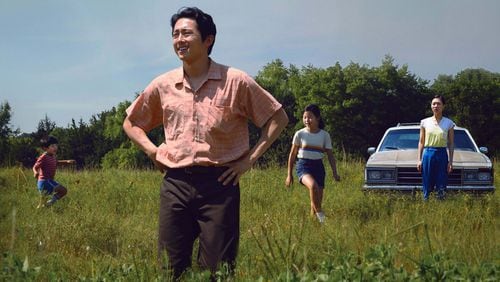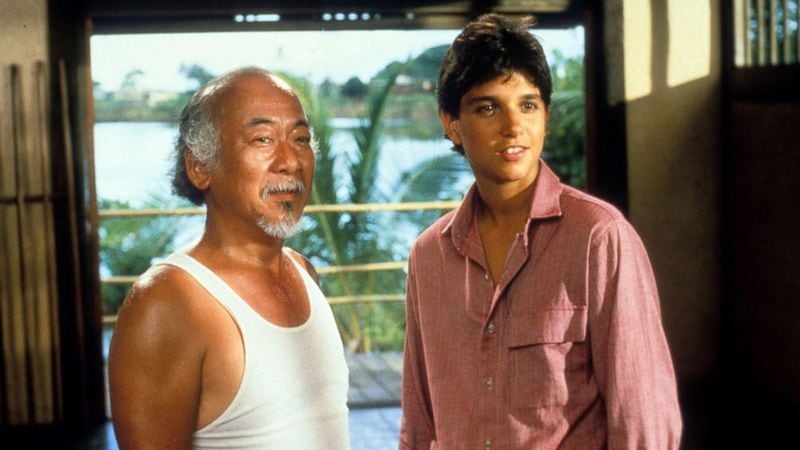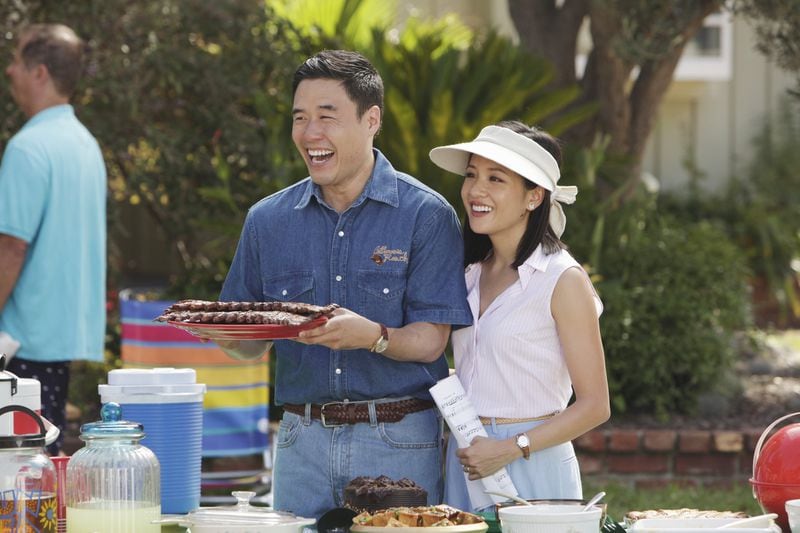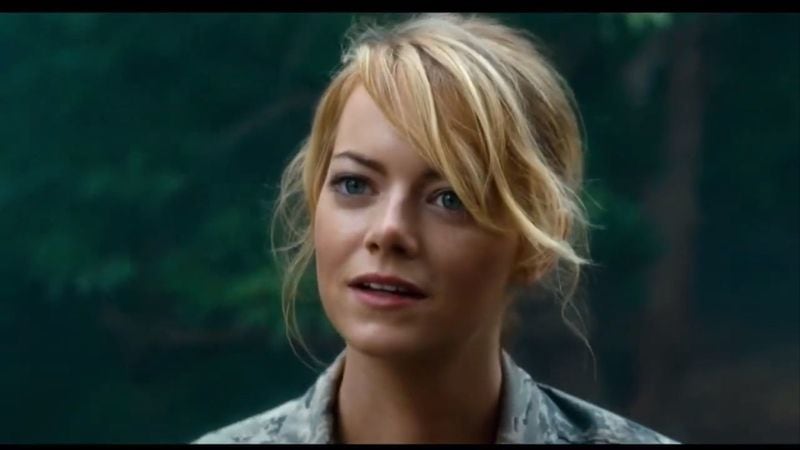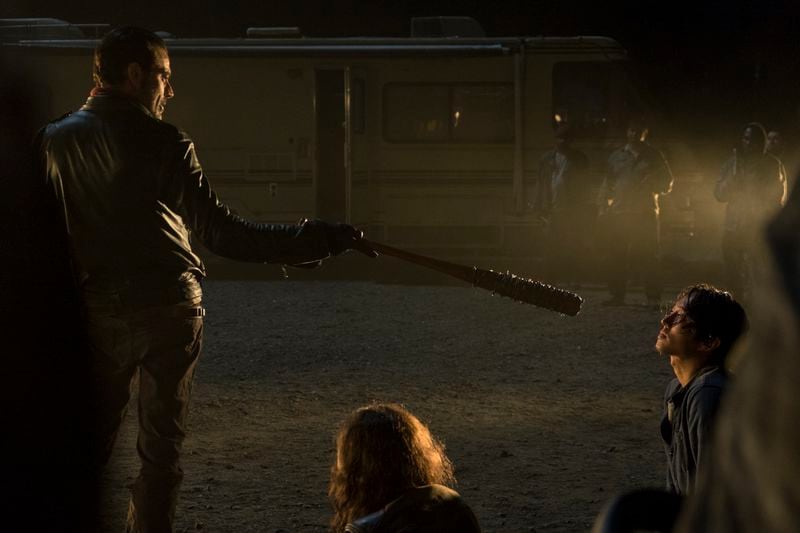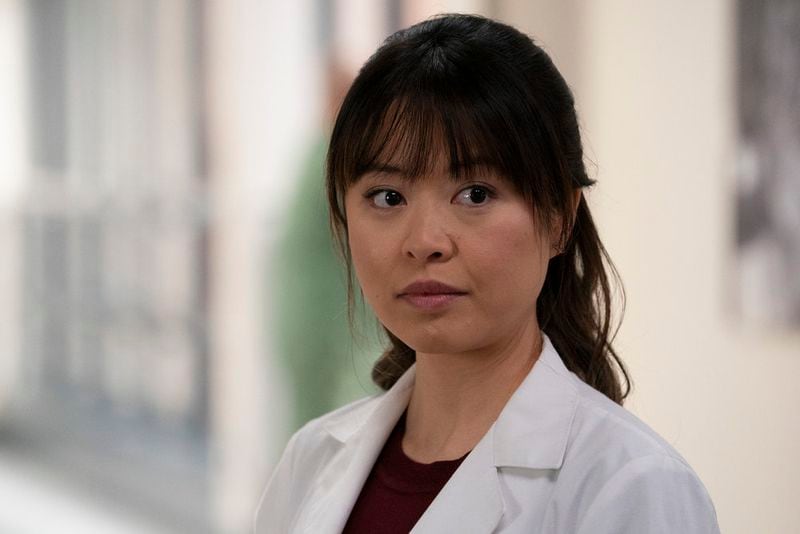For decades in Hollywood, Asian Americans were largely absent on TV and film. For every Mr. Miyagi, there was Long Duk Dong. Lucy Liu was the only Asian American female who got any attention for years.
But in 2021, Asian Americans are having a moment. “Nomadland” director Chloe Zhao is favored by oddsmakers to win an Oscar. The CW’s “Kung Fu,” a reboot of the David Carradine 1970s show, debuted to strong ratings earlier this month with an Asian American female lead. Ken Jeong is zany comic relief on Fox’s hit reality competition show “The Masked Singer.” There are not one ― but two ― reality shows focused around rich Asian Americans: Netflix’s “Bling Empire” and HBO Max’s “House of Ho.”
And Steven Yeun, whose career essentially began in Atlanta on “The Walking Dead” playing the likable Glenn Rhee, is nominated for best male actor in a feature film for his role as a Korean immigrant starting a farm in the 1980s in Arkansas in the well-received film “Minari.”
“We’ve come a long way,” said Jeff Yang, a Wall Street Journal contributor and co-author of an upcoming book “Rise: A Pop History of Asian America from the Nineties to Now.” “Over the past 30 years, we’ve risen from invisibility to some level of relevance.”
Yang, 53, said the term “Asian American” didn’t even exist until the late 1960s. He said he is part of the first generation of Asian Americans “carrying this burden of trying to fill in the gaps of what it meant. We had to invent it. By the time we got into positions as journalists, authors, executives, directors and actors, we were finally able to capitalize on all that hard work not just in Hollywood but across industries.”
He feels portrayals in film and TV matter because “it’s really kind of a mirror of our culture. It’s the thing that both reflects us and confirms to us that we are human, that we are normal.”
In the early years of Hollywood, the few Asian American actors around played stereotypical roles as coolies, spa and laundry workers, waiters, gangsters and kung-fu masters. And there was “yellowface,” where white actors like Katharine Hepburn, Mickey Rooney and Lon Chaney would don makeup to look Asian, mostly in unflattering ways.
Credit: COLUMBIA PICTURES
Credit: COLUMBIA PICTURES
Pat Morita was practically alone on TV in the 1970s as a restaurant owner on “Happy Days,” then as the iconic Mr. Miyagi in “The Karate Kid” films in the 1980s. At the same time, the 1984 film “Sixteen Candles” featured Japanese American actor Gedde Watanabe as an exchange student with the ridiculous name Long Duk Dong, a portrayal that many Asian Americans to this day find offensive. (Every time he showed up on screen, a gong sound went off.)
The 1990s brought signs of light. The 1993 film “The Joy Luck Club” was the first major American film with a largely Asian American cast, and it did OK at the box office, generating $32.9 million. And ABC in 1994 debuted the first TV program with an Asian American lead and cast with “All American Girl.” Margaret Cho played a rebellious daughter of Korean American bookstore owners in San Francisco.
Unlike other female comics at the time with sitcoms like Roseanne Barr and Brett Butler, Cho had zero creative control and critics pummeled the show’s writing and tepid humor. It lasted just 19 episodes.
“You could feel the pressure and tension and weight she was trying to carry at a pretty young age,” said Cynthia Wang, a long-time entertainment journalist who profiled Cho in People magazine a quarter century ago.
Neither “Joy Luck Club” nor “All American Girl” led to a spate of new Asian American stories on TV or film. “It didn’t flip a switch,” Yang said. “People weren’t ready. Hollywood wasn’t ready.”
Emily Chang, a Los Angeles-based actress who got her first major role on the CW’s “The Vampire Diaries” in 2014 in Atlanta, remembers the only Asians of note in Hollywood while she was growing up were Liu (”Kill Bill,” “Charlie’s Angels”) and Jackie Chan (”Rush Hour,” “Rumble in the Bronx”).
The next two decades featured a handful of Asian American stars like Daniel Dae Kim (”Lost”), B.D. Wong (”Law and Order: Special Victims Unit”) and Sandra Oh (”Grey’s Anatomy”). The 2004 comedy “Harold & Kumar Go to White Castle” starring John Cho and Kal Penn was a breakout hit and led to two sequels.
Chang entered the acting world in 2010 and was excited to have an audition opportunity for a spoof movie. Then she read her part where she would play an Asian masseuse giving a massage to a fake Brad Pitt and George Clooney with a heavy accent and “me love you long time”-style lines.
“I called my agent and said, ‘I can’t say this!’,” she said. “He said, ‘You’re confirmed. You have to go in.’ I had a terrible agent. Anyway, you often get the roles you don’t want. So of course I got it. I thought I could maybe turn this around. I did the stupid accent, then improvised a few funny lines without the accent. The director said he loved it but please drop those lines and just do the accent. I left. The casting director was livid and said I’d never work in this town again. Thank goodness that wasn’t true.”
In 2015, ABC decided to try again with another Asian American sitcom “Fresh Off The Boat,” created by Iranian American Nahnatchka Khan. Yang’s son Hudson was part of the cast, which featured Randall Park and breakout star Constance Wu as the parents.
It was a conventional family comedy set in the 1990s that received decent reviews and ratings, lasting six seasons. And while it never became “Seinfeld” or “Friends,” its impact was pronounced. Park has since gone on to star in a Netflix romantic comedy with Ali Wong, “Always Be My Maybe,” and is shooting in Atlanta for both Disney+’s “WandaVision” and NBC’s “Young Rock.”
Wu, of course, used her “Fresh Off the Boat” fame to nab a lead role in the hugely successful 2018 film “Crazy Rich Asians.”
Credit: Nicole Wilder
Credit: Nicole Wilder
The 2010s also featured shows led by Indian Americans: Mindy Kaling’s comedy “The Mindy Project” (2012-2017) on Fox and Hulu, where she plays a doctor; Priyanka Chopra on ABC’s “Quantico” drama (2015-2018) as an FBI agent; and Aziz Ansari as an actor in his Emmy-winning Netflix series “Master of None” (2015-2017).
Chang said over the past five years, more female lead roles have become available along with more ethnic-blind casting.
“You know it’s progress where you don’t feel pressure to only show positive depictions of Asian Americans,” say, as noble doctors or cops, Chang said. She cited Jason Mendoza’s character on NBC’s “The Good Place,” where Filipino Canadian actor Manny Jacinto played a lovably dopey dirtbag with poor impulse control. Chang’s character on “The Vampire Diaries” was a nice girl until she became a rampaging vampire. “There was nothing specifically Asian about it,” she said.
The “gatekeepers are changing,” Chang said. “The writers, the producers and the network executives are getting more diverse. This means no longer making decisions, say, to have a token Asian on a show and checking a box.” Not that it’s truly a level playing field yet, she added, “as people are at least trying to make the effort.”
Credit: COLUMBIA PICTURES
Credit: COLUMBIA PICTURES
One problem that persisted until only recently was “whitewashing.” This is when a character in a book or comic, originally Asian, is rewritten in a film to be white, the excuse being that the project needs an A-list actor to get financed. It happened well into the 2010s. Emma Stone, for instance, played part Asian Hawaiian in the 2015 film “Aloha” and creator Cameron Crowe later apologized for casting her in that role. Tilda Swinton was The Ancient One in Marvel’s “Doctor Strange” in 2016 and Scarlett Johansson in 2017 portrayed an iconic Japanese animé character in “Ghost in the Shell.”
“That subtle dodge is no longer acceptable” in 2021, Yang said. “We’re feeling our oats a little in our ability to push back on representation that feels false. We are starting to gain the ability to shape our own stories.”
One of the most popular characters of the past decade on TV was Glenn on “The Walking Dead,” the biggest cable show of the 2010s. Yeun was an unknown actor in 2010 when his pizza boy character saved Rick Grimes (Andrew Lincoln) from becoming zombie meat in downtown Atlanta on episode two.
Glenn became a beloved character, exuding humanity and falling in love with farmer’s daughter Maggie (Lauren Cohan), who happened to be white. When he was killed by enemy Negan at the start of season seven, the outrage on social media was intense and millions stopped watching the show.
Credit: Rodney Ho
Credit: Rodney Ho
Angela Kang, a Korean American story editor on the show beginning in season two, took over as show runner in season nine. She said she connected immediately with Yeun, in part because they were the only Korean Americans on set.
“He brought so much sensitivity and thought to the way he played Glenn,” Kang said. “We really tried to ensure his character did not fall into some kind of damaging trope of Asian American men, like they’re ineffectual or goofy or creepy or can’t be sexual. He became the Everyman, the boy-next-door character much of the audience could identify with.”
She has also been impressed with the roles he has picked since leaving the show. “You get a sense that the waters run deep inside of him,” she said. “In ‘Minari,’ he is absolutely fantastic. It’s been so satisfying for me to see the choices he has made.”
Christine Chang, who plays a doctor on NBC’s medical drama “New Amsterdam,” said she found Yeun’s characterization of a struggling immigrant powerfully authentic.
“Asian Americans have been the butt of jokes for so long,” she said. “Steven’s role is so quiet. It’s a very Asian American performance. There was a controversy a few years ago when a casting director said Asian Americans weren’t expressive enough. In acting classes, you’re always told to be yourself, to let your humanity, your simplicity come out. That was a hard message for me to internalize and accept. The message I received for a majority of my life is I’m invisible and I’m not enough. I didn’t think being myself was enough.”
Credit: Virginia Sherwood/NBC
Credit: Virginia Sherwood/NBC
All this progress in Hollywood is happening while attacks on Asian Americans have been on the rise since the pandemic began.
Chang herself was verbally attacked at a grocery store last year for being Asian American soon after the virus had shut much of the world down. She told “New Amsterdam” executive producer and writer Y. Shireen Razack, who adapted her story into the March 30 episode. Chang, who plays Dr. Agnes Kao, also treated a Filipino American patient experiencing PTSD from a hate crime.
On a panel discussion with a San Francisco TV station earlier this month, Chang said she felt “incredibly supported by the whole cast and crew ... I’m just really proud to be on a show that doesn’t shy away from difficult and painful topics.”
Chang said watching the recent Atlanta spa shootings was infuriating and found the initial media coverage of the accused assailant’s excuses boggling. She herself played a spa worker in an episode of “Law & Order: Special Victims Unit” last year with Margaret Cho as the madam.
“I don’t know what it’s like to be a real-life spa worker, but I did delve into that through this role,” said Chang. “I was so heartbroken hearing these victims’ stories and how they lived their lives in such an invisible way.”
Yang said invisibility in Hollywood for Asian Americans is no longer an option. In fact, the greater prevalence of Asian Americans on reality shows, on talk shows, on scripted projects, means movies and TV shows can founder and executives won’t necessarily say, “Oh, that Asian American movie didn’t work so no Asian American movie will work.”
Take ABC’s “Dr. Ken.” It was briefly a companion to “Fresh Off the Boat” and lasted just two seasons. Jeong found success elsewhere. The world moved on.
“We as Asian Americans are now allowed to fail,” Yang said. “We’re allowed to go away. There are enough of us around. White people have had that privilege forever.”
About the Author
